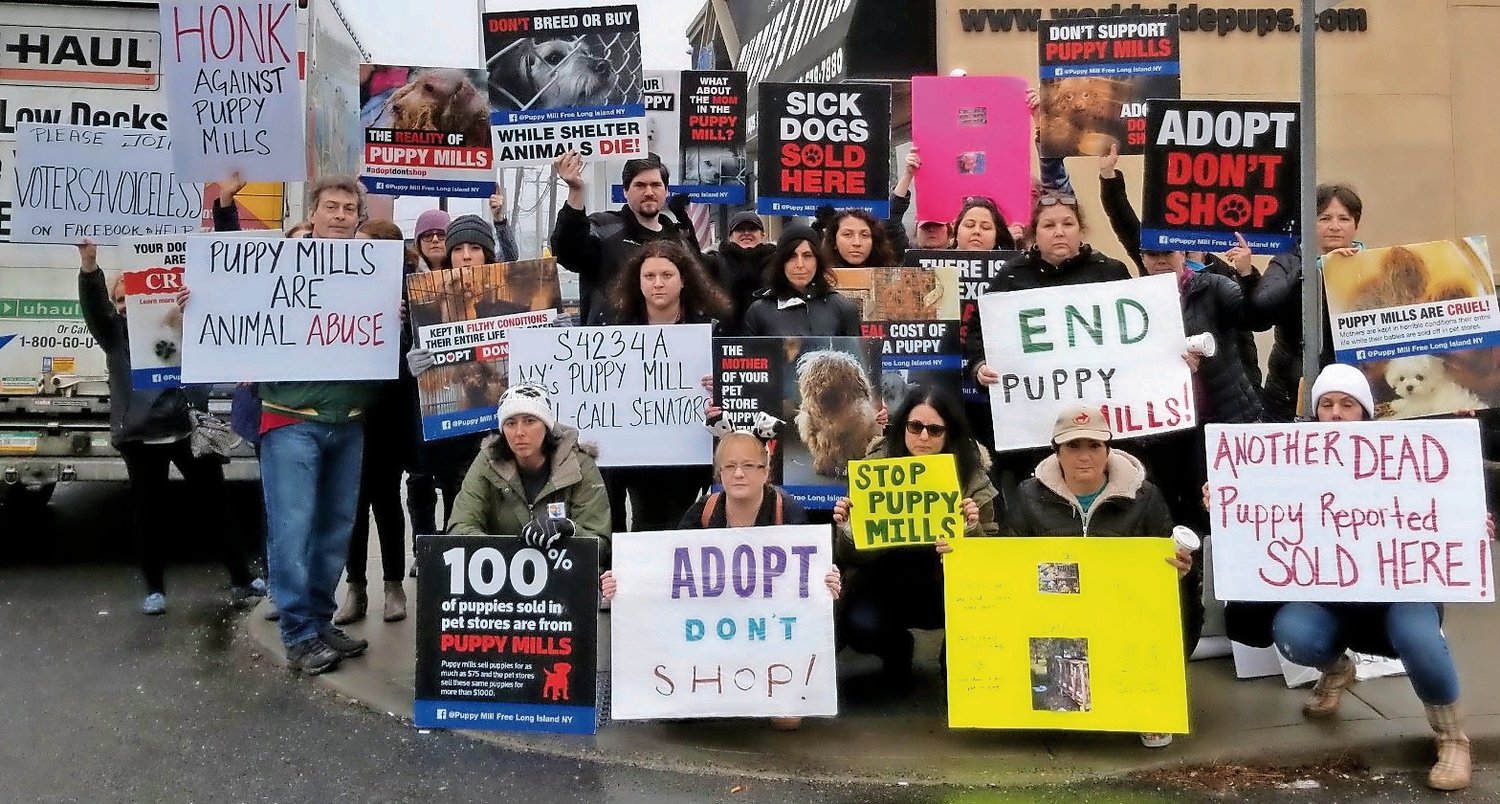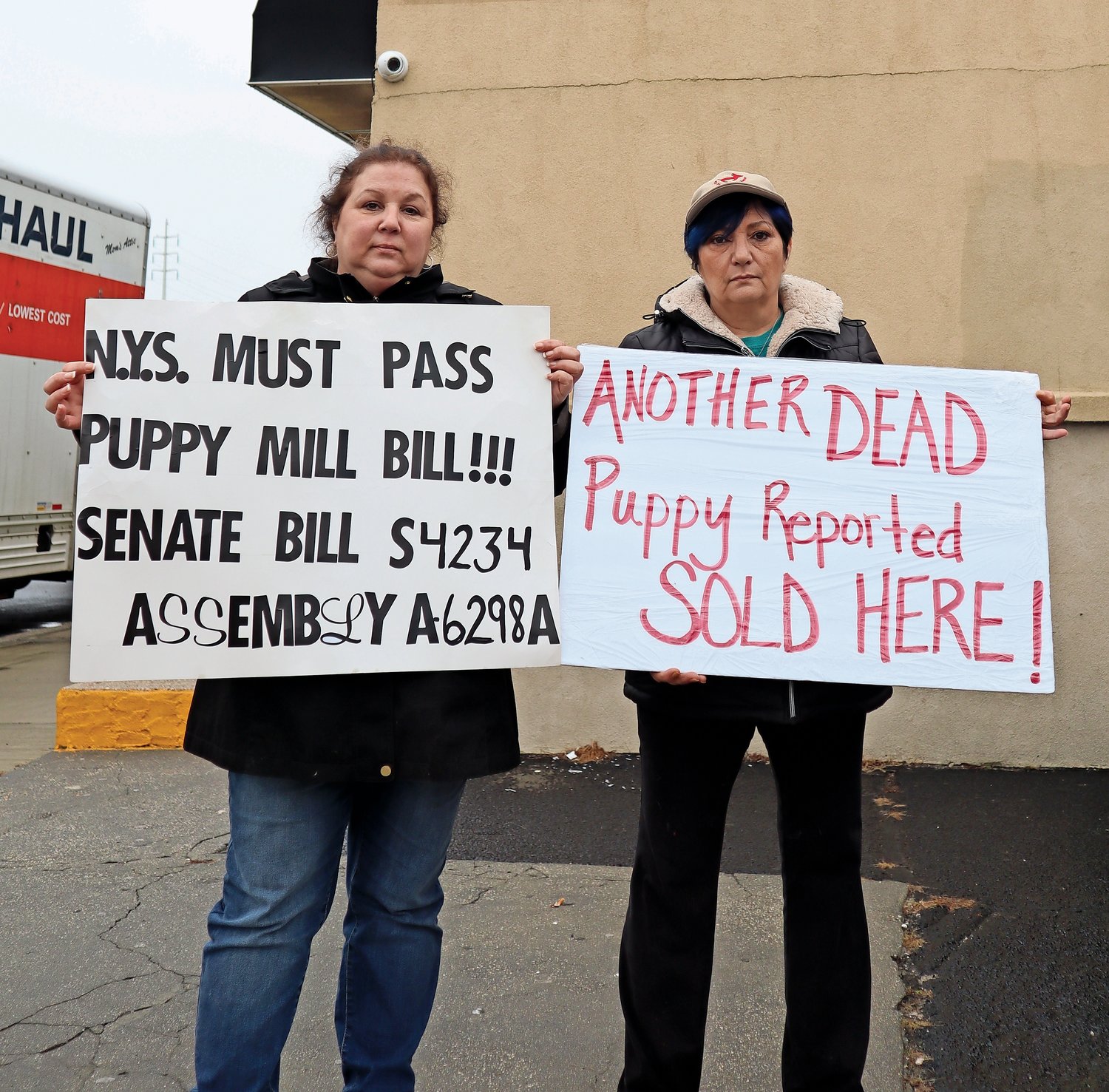Tuesday, April 16, 2024
Brooks, McDonough sponsor state puppy mill ban
Bill would ban sales of animals in pet stores

New York state may soon make it illegal for retail pet stores to sell animals.
State Sen. John Brooks, a Seaford Democrat, recently signed on as a co-sponsor of a bill that would ban the sale of dogs, cats and rabbits in retail pet stores. On Tuesday, State Assemblyman Dave McDonough, a North Merrick Republican, pledged his support for a companion bill in the State Assembly.
The pending legislation is a response to animal rights advocates’ concerns that pet store animals, often shipped in from commercial, out-of-state breeders, are not properly examined for illnesses.
“When you go to a pet store to buy a dog or a cat, there’s an emotional connection there,” said Brooks, who represents Bellmore and Merrick. “You want to believe you’re buying a healthy animal.”
When the legislation was first introduced, Brooks said, he met with several pet store owners to hear their side. He said they touted safe pet sale practices, but those claims turned out to be “false” after a number of sick animals were seized before they could be sold.
In Hicksville on Dec. 18, a shipment of more than 30 puppies to a local chain pet store was intercepted by the Nassau County Society for the Prevention of Cruelty to Animals. Several of the animals had upper-respiratory problems and pneumonia symptoms, according to SPCA President Gary Rogers. Some of those puppies are still under the care of a veterinarian, while others are in foster care. The incident has cost the SPCA at least $30,000, Rogers said.
The Herald Life obtained a video taken inside a Bellmore pet store, which showed a beagle puppy, held in a pen with two other puppies, with exaggerated, heavy breathing. The SPCA responded to the incident earlier this month, and brought the puppy to a veterinarian for treatment before it was returned to the store, Rogers said. The other two animals were quarantined in the store for a short while.
“The justification is there” for the legislation to become law, McDonough said. “To me, it’s common sense.” He added that although there is an argument that the law would negatively impact pet stores that sell animals, “they have to look into getting well-documented dogs. It doesn’t mean they can’t start offering a better product,” such as through adoption.
McDonough will become a co-sponsor of the bill, he said, which is currently being reviewed by the Assembly Agriculture Committee. In the Senate, it was sent to the Domestic Animal Welfare Committee.
Under New York law, it is illegal to sell animals with contagious illnesses, Rogers said, and while pet sales require accompanying health certificates, they are often issued by out-of-state veterinarians — making them difficult to regulate. It’s also hard to prove if someone is intentionally violating the law, as an animal could be exposed to illness anywhere between the point of sale and its diagnosis. Because of this, Rogers recommends that anyone buying a pet from a retail store take the animal directly to a veterinarian.
On Jan. 4, members of Our Best Friends Rescue, a Freeport-based rescue organization, protested in front of a pet store in Bellmore to advocate for the passage of the legislation. Nearly 30 people attended.
“These mills usually have little to no vetting,” said Paula Werner, an organization volunteer. Animals used for breeding spend “most of their life in a cage to mass produce” puppies and kittens, she added, and the unregulated mills then transport the young pets into New York.
Mills are “how you get puppies that don’t make it to two weeks,” said Maria Menichetti, of East Meadow, a former veterinarian technician and a volunteer for OBFR. “We just want them alive and out of pain. That’s what it’s about.”
The store did not respond to requests for comment.
State lawmakers “have to address animals being imported into New York state. If legislators look at what [the SPCA] has done recently, they might be justified in passing the law,” Rogers said. “This might be the bill that’s going to solve the problem.”
For Werner, “Long Island is the key” for fighting against animal cruelty, she said, referring to the more than 2,000 pet stores in the area. “We’re just trying to educate the public.”
HELP SUPPORT LOCAL JOURNALISM
The worldwide pandemic has threatened many of the businesses you rely on every day, but don’t let it take away your source for local news. Now more than ever, we need your help to ensure nothing but the best in hyperlocal community journalism comes straight to you. Consider supporting the Herald with a small donation. It can be a one-time, or a monthly contribution, to help ensure we’re here through this crisis. To donate or for more information, click here.
Sponsored content
Other items that may interest you







